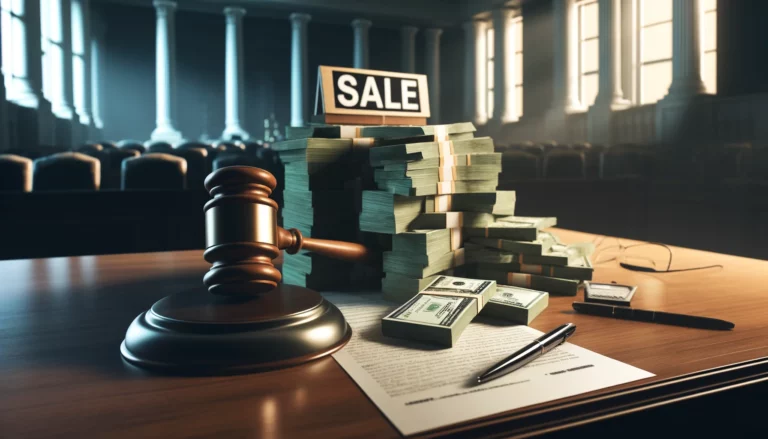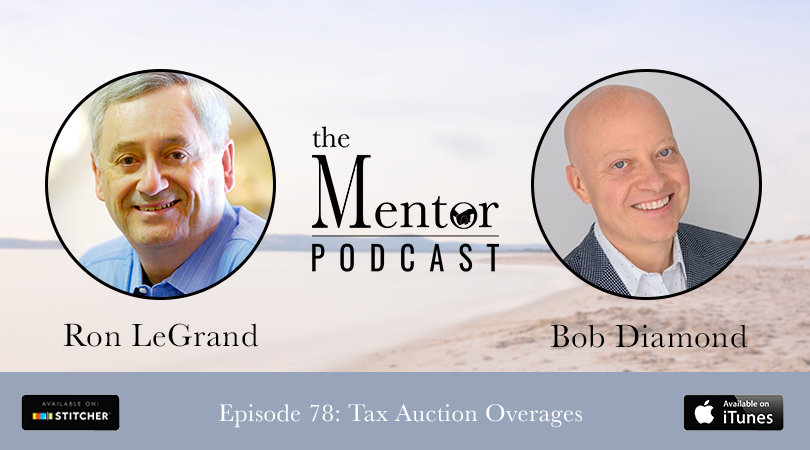All Categories
Featured
Table of Contents
Many of those home owners really did not even know what overages were or that they were even owed any type of excess funds at all. When a homeowner is incapable to pay residential or commercial property taxes on their home, they might shed their home in what is understood as a tax sale auction or a sheriff's sale.
At a tax sale public auction, buildings are sold to the highest possible prospective buyer, nonetheless, sometimes, a residential or commercial property may cost more than what was owed to the county, which leads to what are known as surplus funds or tax obligation sale overages. Tax obligation sale overages are the money left over when a seized residential property is marketed at a tax obligation sale public auction for greater than the quantity of back taxes owed on the property.
If the building costs more than the opening quote, then overages will be produced. What many home owners do not understand is that many states do not allow areas to keep this additional money for themselves. Some state statutes dictate that excess funds can only be asserted by a couple of celebrations - consisting of the person that owed taxes on the property at the time of the sale.
If the previous home owner owes $1,000.00 in back taxes, and the residential or commercial property costs $100,000.00 at public auction, after that the law mentions that the previous property proprietor is owed the distinction of $99,000.00. The region does not reach keep unclaimed tax obligation excess unless the funds are still not declared after 5 years.
Best-In-Class Tax Overages Business Training Overages List By County
Nevertheless, the notice will generally be mailed to the address of the residential property that was offered, but because the previous homeowner no much longer lives at that address, they frequently do not receive this notice unless their mail was being forwarded. If you remain in this circumstance, do not let the federal government maintain money that you are entitled to.

From time to time, I listen to talk concerning a "secret new opportunity" in business of (a.k.a, "excess proceeds," "overbids," "tax sale surpluses," and so on). If you're totally strange with this idea, I want to provide you a quick overview of what's taking place here. When a homeowner quits paying their real estate tax, the local town (i.e., the area) will wait on a time before they take the property in foreclosure and market it at their annual tax sale public auction.
The details in this write-up can be affected by numerous distinct variables. Suppose you own a home worth $100,000.
Tailored Tax Overages List Blueprint Tax Sale Overages

At the time of foreclosure, you owe ready to the area. A few months later, the county brings this property to their annual tax sale. Below, they sell your building (together with loads of other overdue properties) to the highest possible bidderall to recoup their shed tax income on each parcel.
This is since it's the minimum they will need to redeem the cash that you owed them. Right here's the important things: Your building is easily worth $100,000. A lot of the capitalists bidding on your property are fully mindful of this, too. Oftentimes, homes like your own will receive proposals much past the amount of back taxes in fact owed.
Yet obtain this: the area just needed $18,000 out of this property. The margin in between the $18,000 they needed and the $40,000 they obtained is understood as "excess earnings" (i.e., "tax sales excess," "overbid," "excess," etc). Several states have statutes that ban the area from keeping the excess payment for these properties.
The area has regulations in place where these excess proceeds can be claimed by their rightful proprietor, usually for a designated period (which differs from state to state). If you shed your residential property to tax obligation repossession since you owed taxesand if that building ultimately sold at the tax obligation sale auction for over this amountyou can probably go and accumulate the distinction.
Unparalleled Unclaimed Tax Sale Overages Learning Best States For Tax Overages
This includes confirming you were the previous proprietor, completing some paperwork, and waiting on the funds to be supplied. For the average individual that paid full market price for their property, this method doesn't make much sense. If you have a major amount of cash money spent right into a residential or commercial property, there's means excessive on the line to simply "allow it go" on the off-chance that you can bleed some additional cash out of it.
With the investing technique I make use of, I might acquire residential properties complimentary and clear for cents on the buck. When you can get a residential or commercial property for an unbelievably economical price AND you recognize it's worth substantially more than you paid for it, it might very well make sense for you to "roll the dice" and attempt to gather the excess profits that the tax foreclosure and auction process create.
Leading Real Estate Overage Funds Blueprint Tax Sale Overages
While it can definitely pan out similar to the method I've described it above, there are additionally a few disadvantages to the excess profits approach you truly ought to be aware of. Bob Diamond Overages. While it depends substantially on the attributes of the building, it is (and in many cases, likely) that there will be no excess earnings produced at the tax sale public auction
Or maybe the area doesn't create much public passion in their public auctions. Either way, if you're acquiring a residential property with the of allowing it go to tax obligation foreclosure so you can collect your excess proceeds, what happens if that cash never ever comes via? Would certainly it be worth the time and cash you will have lost once you reach this final thought? If you're anticipating the area to "do all the work" for you, after that presume what, In most cases, their timetable will essentially take years to work out.
The very first time I pursued this technique in my home state, I was informed that I didn't have the option of asserting the surplus funds that were generated from the sale of my propertybecause my state really did not permit it (Tax Overage Recovery Strategies). In states such as this, when they generate a tax obligation sale overage at a public auction, They just maintain it! If you're considering using this technique in your organization, you'll intend to think long and hard about where you're working and whether their regulations and statutes will also allow you to do it
Tax Sale Overage List Overages Surplus Funds
I did my ideal to give the proper answer for each state above, yet I 'd suggest that you prior to continuing with the presumption that I'm 100% appropriate. Remember, I am not an attorney or a certified public accountant and I am not attempting to offer expert lawful or tax obligation advice. Speak to your lawyer or certified public accountant prior to you act upon this details.
Table of Contents
Latest Posts
Tax Sale List
Invest Tax Liens
How To Invest In Tax Liens Online
More
Latest Posts
Tax Sale List
Invest Tax Liens
How To Invest In Tax Liens Online